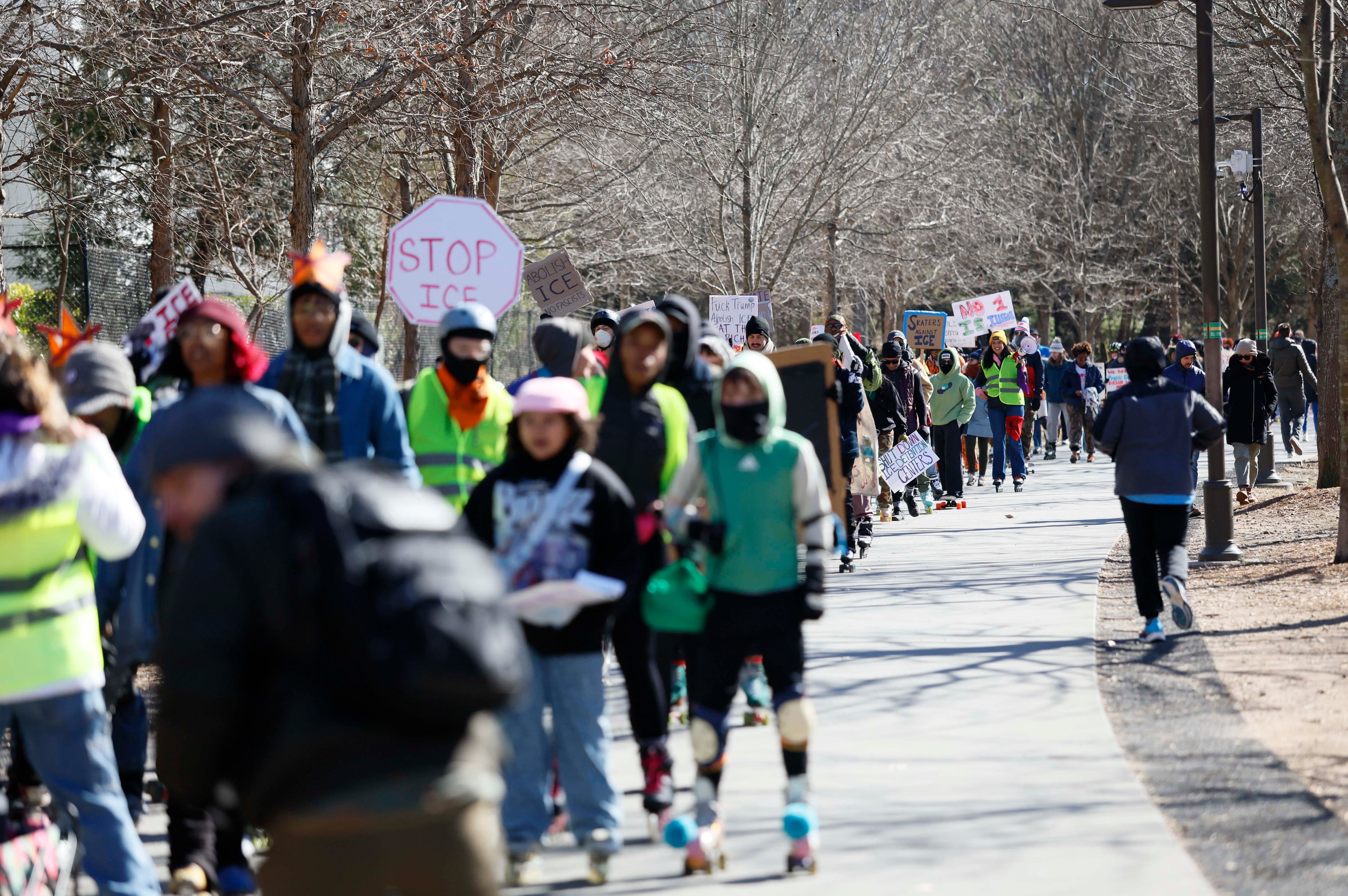Atlanta appeals decision that restarted clock on training center petition

While city of Atlanta officials and petition organizers argue over the controversial method the city has chosen to verify signatures on the public safety training center referendum, the city maintains in court that the entire effort is moot, anyway.
The city of Atlanta has filed an appeal against a district court’s decision last month to allow non-Atlanta residents to collect signatures as part of the grassroots effort to put the question of the proposed public safety training center on the ballot.
The preliminary injunction on the residency requirement, allowing people outside the city to collect signatures, was issued by U.S. District Court Judge Mark Cohen and came well into the 60-day timeline petitioners have under law to collect signatures from registered city voters.
The decision restarted the collection timeline, giving organizers a significant edge to hit the 58,000 or so names needed.
In a legal filing submitted Monday to the U.S. Court of Appeals for the Eleventh Circuit, lawyers for the city of Atlanta double-down on their stance that the referendum effort is invalid no matter how many signatures are collected by organizers.
“The district court failed to see that the residency requirement is not the reason the petitioners cannot place the initiative on the ballot,” lawyers for the city wrote in the appeal. “Rather, binding Georgia Supreme Court precedent holds that the Petitioners cannot use the referendum process to repeal the ordinance.”
The city is leaning heavily on a legal precedent set in the 1990s by a Georgia Supreme Court Case that ruled residents of the City of Claxton could not overturn a municipal ordinance through a referendum.
It also argues that the lease agreement between the city and the Atlanta Police Foundation passed by city council and signed by former Mayor Keisha Lance Bottoms in 2021 can’t be reversed based on “constitutional prohibition on the impairment of contracts.”
But the appeal filed Monday makes a new point that the court had no authority to extend the signature collection timeline under a legal principle that federal courts should not change election rules too close to an election.
The city said that the signature collection restart makes timelines set under law unclear and “leaves the City in a bind.”
On a call with reporters Wednesday, experts hired by the city to help with the verification process said the time it takes to verify signatures is dependent on the clarity of those signatures.
“We have 50 days by law,” said Chris Sautter, a political strategist and election lawyer. “But it will vary depending on the condition of the petitions when they arrive.”
The city’s chief financial officer, Mohamed Balla, told The Atlanta Journal-Constitution, putting the referendum on the ballot could cost the city as much as $3 million out of the city’s general fund.
“Our estimate with the verification that needs to happen, plus the administrative functions of running a vote, that could be as high as $3 million,” he said.
The cost would depend on when the referendum is voted on. If the vote is off cycle, the city would bear all the costs, so Balla said he expects the city to join a statewide or federal election to lower the price tag.
According to the city, the off cycle Atlanta Board of Education General Election in November is projected to cost $3 million.
“It was not (budgeted).” Balla said. “We’ll have to figure out how to pay for this, if this happens. We’ll probably have to use rainy day funds or reserve funds to pay for this.”
“Those funds could be redirected and used for other pressing needs of the city of Atlanta,” he said.
In preparation for the task of validating tens of thousands of signatures on a 50 day timeline, the city has enlisted the help of former city clerk Emeritus Foris Webb III, as well as election lawyers and political consultants.
City officials expect to pay $500,000 to $1 million for signature validation and another $1 million to $2 million in legal fees.
But the estimated cost of the referendum falls far below the total cost of the project itself. The actual cost to taxpayers for the facility is expected to be more than double what officials said when the deal with the Atlanta Police Foundation was originally struck two years ago.
The city is on track to contribute $31 million to construction and $1.2 million in annual lease payments to the police foundation over the course of 30 years.
— Staff writer Jozsef Papp contributed to this article.



